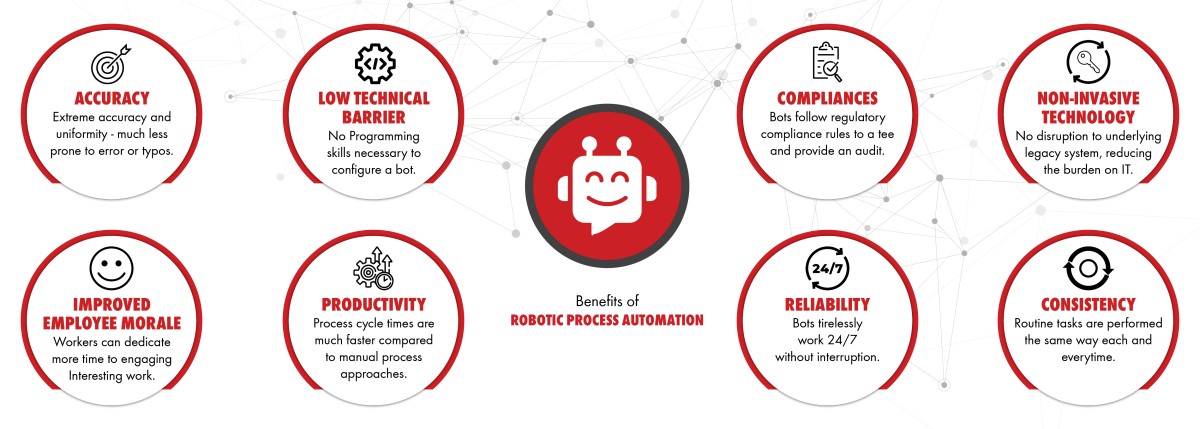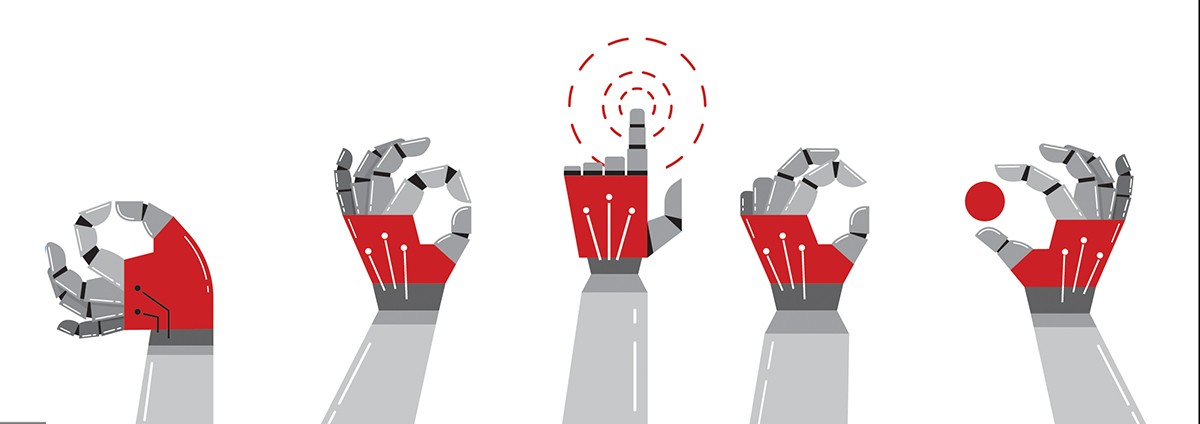Robotic Process Automation (RPA) is a trending software technology which can build software robots to mimic human actions interacting with digital systems and software. In simple words, RPA allows using software robots instead of people to perform the business processes. Any rule-based manual tasks associated with repetitive and transactional processes can be easily automated with RPA.
Just like human beings, these robots can do things like navigate through different applications, addressing queries, extract data, making calculations, maintaining records, make decisions based on given conditions and perform a wide range of defined actions. But the robots can do it more efficiently, effectively and consistently than people - without the need to take any break in between the heavy work volume. With the RPA robots implemented to perform regular, repetitive and high-volume tasks - humans are freed to focus on the more complex, innovative, collaborative and creative tasks.
A wide range of sectors can benefit from RPA ranging from financial services, healthcare, manufacturing, public sector, customer service, operations, IT and far beyond. RPA is helping to grow businesses and making everything easier for both enterprises and customers. This is because of high returns, quality products and services, respectively.
WHY DO BUSINESSES NEED RPA?

PROCESS INDICATORS FOR A POSSIBLE RPA USE

Robotic Process Automation technology includes plenty of potential in shifting the way businesses operate. Moreover it is easy to adapt to businesses needs and the associated cost is lesser in the long run. Hence, many enterprises are likely to adopt RPA. With opportunities to work smarter and faster, RPA is an element of intelligent automation that firmly roots your business in the 21st century.
In conclusion, we can say that RPA is elevating businesses to higher levels as well as making everything more efficient for both enterprises and customers because of high returns, quality work in addition to lower overhead.

